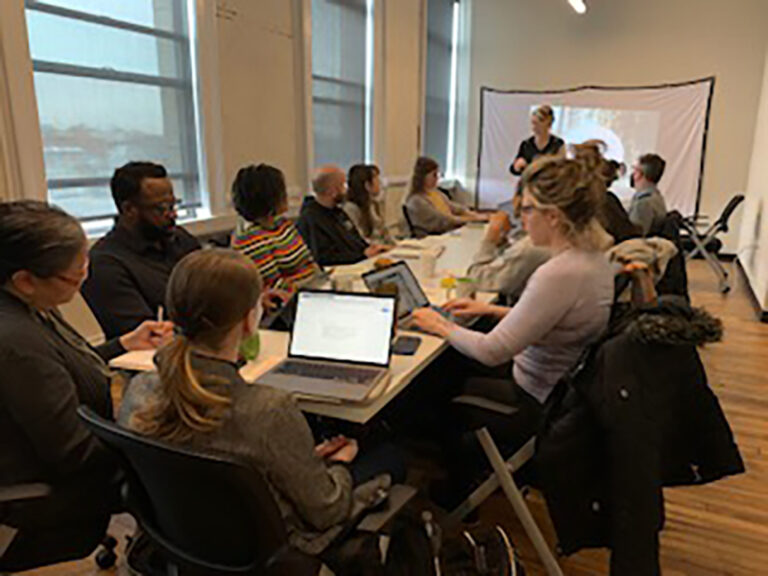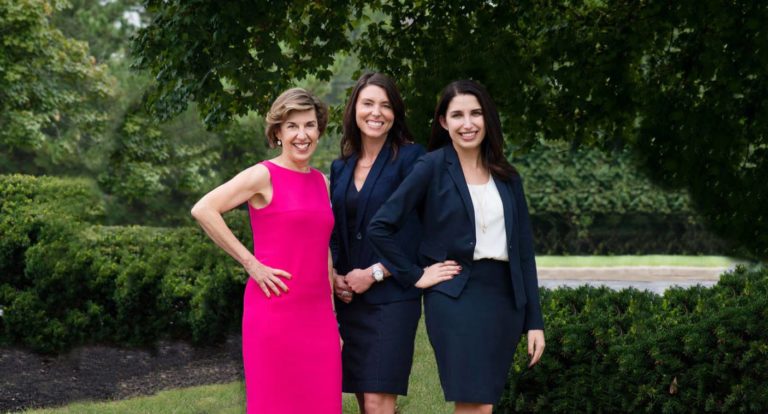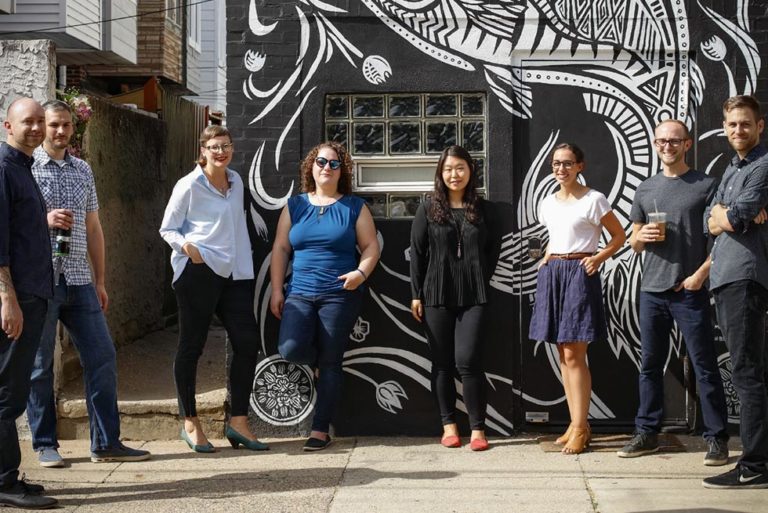The Message Agency Story
“To me, business is personal. I cannot separate the two.” -Marcus Iannozzi
Reflection.
From the Latin, reflexionem — “a bending back” (Online Etymology Dictionary).
Any attempt to undervalue the role reflection plays in innovation would be a fool’s errand. Whatever the purpose of innovation — products, services, workplace culture, societal impact — conscientious reflection precedes, and even incites, innovative thinking. How else can you consciously re-think or challenge the conventional structures and practices of business that inform how a company engages with its community, both within its walls and beyond, without first looking back so as to look forward?
This is why I find it important to note the etymology of the word reflection. The root of this word takes the concept of how one thinks about the world around them and hurls it out of a site of thinking into a place of action. I also find the action of bending back an instructive image for thinking about innovation in the third sector. The task at hand for many social enterprises is not to create a brand-new economic system but to reevaluate and reconsider how business can be a force for good, how seemingly rigid conventions can be curved. (Connections to King’s arc of the moral universe are unintended but welcomed.)
Enter: Marcus Iannozzi, Founder and Principal of Message Agency, a full-service interactive studio based in Philadelphia that provides social marketing, branding, design, content strategy, website development, and systems integration services.
“We do a lot of thinking and deliberation as a team, and people’s voices and ideas really count and make a difference in the work that we do,” said Marcus. “At our core, we feel that innovation comes from sharing and that directly extends to how we interact with world outside of our business, the ecosystem we function in.”
Much of Message Agency’s work is focused on collaboration. They take their partnerships seriously and are committed to working with nonprofits, foundations, universities, governments and social enterprises. Message Agency’s long list of clients includes ProjectHOME, Mazzoni Center, Center for Sustainable Energy, and the Sustainable Business Network.
Not only is SBN’s Sustainable Business Directory an example of Message Agency’s design work, but it is also a helpful case study to understand how they help nonprofits and social enterprises leverage tools already at their disposal.
Committed to open source development, Message Agency created the modules that allow for integration of Drupal and Salesforce. Drupal, an open source content management system, is available license-free, and Salesforce, a customer relationship management product, is free for nonprofits. Taking a step back and realizing the profound impact that integration could have on their client base, Marcus and his team figured out how to incorporate the two tools.
“We could have kept these modules as a competitive advantage and made them proprietary, and by all other typical business advice from other people, we should have,” said Marcus. “But we knew that our clients would benefit tremendously from a tool like this.”
Instead of making the sexy high-dollar contracts their primary goal, Marcus and his team realized that there are many organizations and businesses who are not being served well. And even though there are many self-service tools available, sometimes potential clients and partners do not always know how to leverage these tools for their success. True to Message Agency’s mission and culture, they are working out of the latter half of the familiar give a man a fish proverb: “What we want to do is figure out a cost effective way to help folks learn how to fish,” said Marcus.
Reflection was a central theme of my conversation with Marcus. In fact, at one point, Marcus even noted that he hadn’t intended for our conversation to lean so heavily towards his philosophy of business; however, this is exactly why our conversation was energizing. Marcus puts his principals into action when it comes to social enterprise and rethinking conventional business ideas. He very much lives the Franklinian ideal that “well done is better than well said.”
Social enterprise values are baked into his person. “If I can’t run a business in this way, I don’t want to run it at all,” he said. He jokes that some may see this as a dysfunction, but this is obviously far from the truth. He has a vision for how business can be a force for good in Philadelphia and he is unwavering in his dedication to his values that have led him through his career journey. “I have always been working in the third sector, even before we had the term social enterprise to define what businesses like this were doing.”
And Marcus is not alone. Message Agency’s anatomy as a values-based business appeals to talented individuals looking to both engage in the fast-paced innovative world of technology and participate in work that considers more than the conventional bottom line.
“I have the greatest staff in the world,” he said. “[Message Agency] attracts super smart, super conscious people. Assembling a cast of folks like this creates a culture of reflection, because we are always asking questions of ourselves, of our clients. Our culture is about being thoughtful.”
Creating a workplace culture like this that promotes learning, collaboration, and reflection not only creates a creative, supportive workplace, but it also ensures that they are able to provide quality service and products to their clients. At Message Agency, employees are encouraged to reflect on their work and what kind of environment they require to not only hit deadlines, but to complete tasks well.
Keep in mind, when Message Agency initially completed their B Impact Assessment, a free online tool that helps businesses measure their social and environmental impact, they were recognized as a “Best for the World” company. They specifically excel in the areas of the assessment that focus on how a company values their employees. In 2016, when B Lab segmented the “Best for the World” winners into different categories, Message Agency was recognized as a “Best for Workers” business. (They have been recognized as “Best of the World” three years in a row.)
Not only does Message Agency have a very narrow difference in salaries between the highest and lowest earners, but Marcus has been very intentional in fostering a specific kind of culture. For Marcus, thinking about employees requires a business owner to contemplate who owns value.
“As a business owner, I think fundamentally differently about who owns the value that our business collectively generates; our employees, in particular, contribute substantially to that value, and we respond with employment, benefits and management practices that reflect that acknowledgement,” said Marcus (“Best for the World” List).
It is important to note, however, that even as we celebrate businesses, like Message Agency, in the social enterprise space, that rethinking business conventions and then subsequently putting those values into practice is difficult. Marcus stressed that communities like the local B Corp network and SBN are helpful to remind yourself that you are not alone.
“Being a part of a community is powerful. Being a business owner is lonely and difficult no matter what sector you are in, but finding other like-minded folks who all look at business in a particular way — that is amazing and reaffirming,” said Marcus.
This sense of belonging is vital. Businesses who value more than just the conventional bottom line still have to consider the bottom line. Business owners have to know how to make a profit, but this doesn’t automatically assume that they should receive the lion’s share of that profit. It is a different way of thinking about business and it can become exceptionally difficult when business owners watch colleagues make different decisions, with different values, and become richer because of it. But when business owners are in a community where their principles are valued and affirmed, it allows the social enterprise movement to continue to have a positive lasting impact in local economies.
“Philadelphia is a hub for social enterprise,” said Marcus. “You can run a business like Message Agency in Philadelphia. There are external pressures in other big cities that keep you from making the decisions that you want to make.”
When Marcus talks about Philadelphia, he is a cheerleader for this town. “If I could wave pom-poms I would,” he said.
He affirms that the social enterprise and social justice community is strong in the city and that it is increasingly essential for this community to stay strong, stay together, and “to build bridges and coalitions that we didn’t even know could exist.”
After my conversation with Marcus, I am encouraged to think big, to continue to create spaces for collaboration and community — spaces where people can support each other as they bend their ideas about the role business plays in communities without breaking their spirits. And I am also convinced that I want people in my corner like Marcus and his team, with or without pom poms. Don’t you?
To learn more about Message Agency, click here.
The author, Bradford Bucknum, serves the Sustainable Business Network as the Member Relations Associate. He focuses on member experience, communications, and retention. In 2016, he received his MFA in Poetry from Temple University. Questions?: bradford@sbnphiladelphia.org




